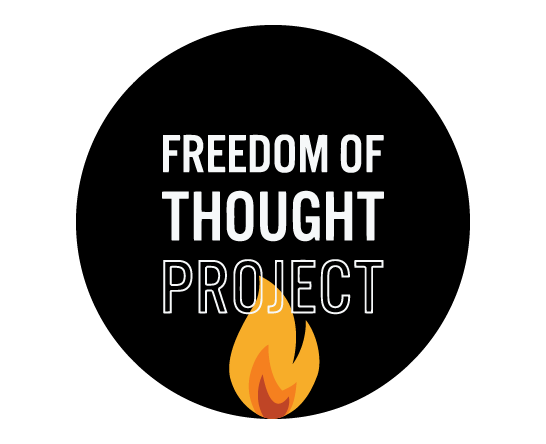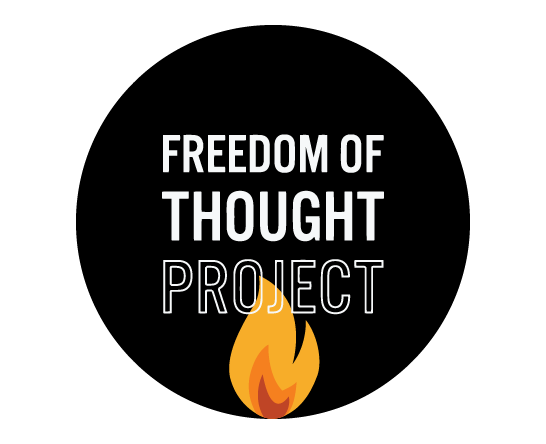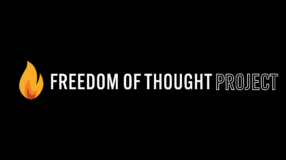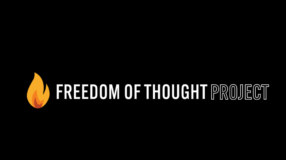The Freedom of Thought Update
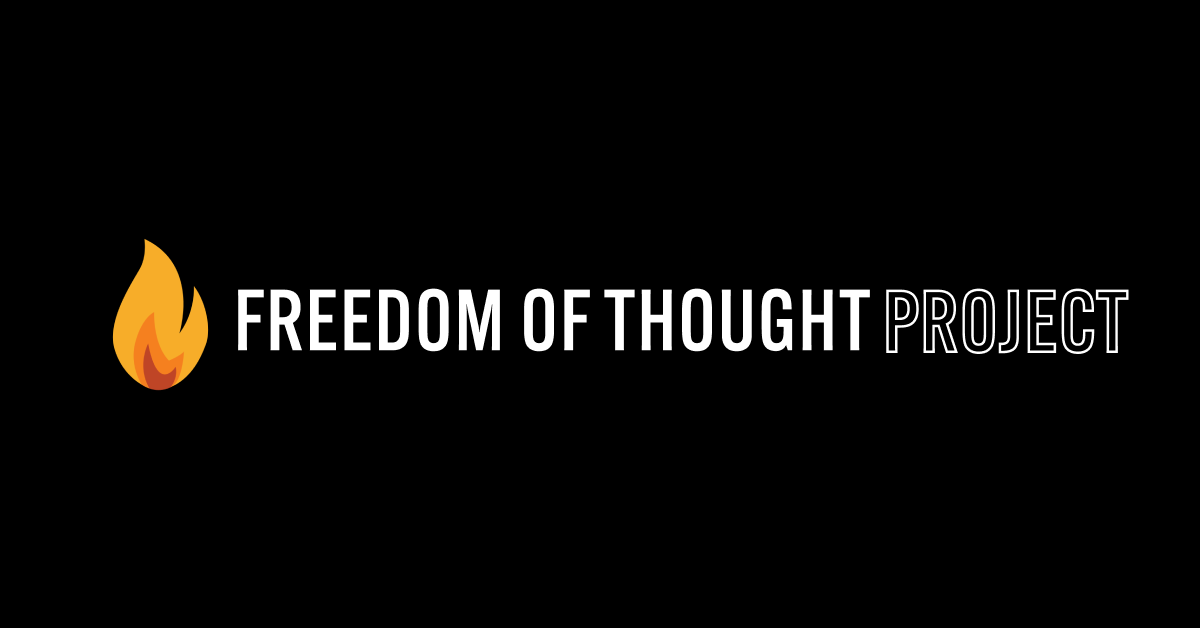
The Freedom of Thought Update October 2023
Focus: The University of California-Berkeley
The Federalist Society student chapter at the University of California-Berkeley recently hosted its first event of the year with Manhattan Institute scholar and Stanford Law alum Heather Mac Donald. Heading into the year, the chapter was encouraged by Dean Erwin Chemerinsky’s pledge to help make the law school a “community where all feel included and . . . where all views can be expressed and are treated with respect.”
Unfortunately, protest and disruption at the event revealed that the school still falls short of that mark. Even before the event began, vandalism of program advertising – “RACISM” scrawled across promotional flyers – was not consistent with the promised respect for diversity of views. During the event itself, multiple students heckled Mac Donald. She was interrupted, talked over, or jeered an average of two times per minute during her speech. The longest she spoke uninterrupted was three minutes and eight seconds. During Q and A, most of the student questions were long rants against Mac Donald which sometimes had a question mark at the end. Such as,
Your book is racist, your arguments are racist, are based in eugenics. . . Why should we take you, as students of color, take you specifically, or you Fed Soc, take any of this seriously when all you want to do is peddle peddle racist dribble?
Though one student was honest enough to end her question with, “I don’t have a question.”
To be clear, protestors did not shut down the event or completely drown out Heather Mac Donald’s remarks. But their engagement with classmates and the invited speaker was plainly short of Dean Chemerinsky’s standard of being “respectful and kind to one another.”
The school’s response to the misbehavior has similarly been a mixed bag. To its credit, the school itself posted the full video of the event on the law school website, ensuring that the ideas discussed were not canceled and perhaps reached an even wider audience. On the other hand, there was no official response to the flyer vandalism or program disruption, though Dean Chemerinsky himself acknowledges, “we can control how we act and treat one another within the Law School.” Doing “all we can to be respectful and kind to one another” presumably entails more than avoiding Stanford-style mayhem, but students might benefit from some remedial instruction on norms of collegial engagement.
College Fix covered the spectacle with this article on the event.
The law school posted the full talk here.
Register Now!
DEIA Initiatives in the Workplace Post-SFFA
Featuring:
• Jocelyn Samuels, Vice Chair, Equal Employment Opportunity Commission
• Andrea Lucas, Commissioner, Equal Employment Opportunity Commission
• Moderator: Kate Comerford Todd, Partner, Ellis George Cipollone
Where:
The National Press Club
529 14th St NW,
Washington, D.C. 20045
When:
Tuesday, October 17th, 2023
6:00 PM – 7:00 PM EST program
Reception to follow
Cost:
Members – $25
Non-Members – $50
In June, the Supreme Court held that consideration of applicants’ race in admissions decisions of Harvard and the University of North Carolina violated both the Equal Protection Clause of the Constitution and Title VI of the 1964 Civil Rights Act. Join us as two EEOC Commissioners, Democrat Vice Chair Jocelyn Samuels and Republican Commissioner Andrea Lucas, discuss their respective views on how this decision, the federal law banning employment discrimination (Title VII of the 1964 Civil Rights Act), and EEOC regulations apply to employers’ DEI programs and initiatives. The Commissioners also will discuss their views on related topics such as the benefits and risks related to various categories of DEI programs; how employers should assess the lawfulness of their initiatives; and promising practices and guardrails for employers.
Recent Programming
Academic Freedom and Freedom of Expression:
Will the proposed accreditation standard support freedom of thought at law schools?
A Freedom of Thought Webinar
Recent high-profile incidents at law schools have raised questions about the scope of academic freedom for faculty and freedom of speech for students and faculty. At the suggestion of its Strategic Review Committee, the Council of the ABA’s Section of Legal Education and Admissions to the Bar, which is the primary accreditor of American law schools, has put out for comment a proposed new accreditation standard, “Standard 208, Academic Freedom and Freedom of Expression.”
As the Council describes the core concern behind the proposed standard: “Effective legal education and the development of the law require the free, robust, and uninhibited sharing of ideas reflecting a wide range of viewpoints. Becoming an effective advocate or counselor requires learning how to conduct candid and civil discourse in respectful disagreement with others while advancing reasoned and evidence-based arguments. Concerns about civility and mutual respect, however, do not justify barring discussion of ideas because they are controversial or even offensive or disagreeable to some.”
The Freedom of Thought Project has assembled a virtual panel to help illuminate discussion of various questions implicated by the proposed standard. Among other topics, the panel will consider the rationale for the standard put forward by the Council as well as the likely efficacy of the standard. It will also consider the role of accreditation standards in supporting freedom of thought at law schools.
What We’re Reading
Links offered to spark thought and discussion, not to endorse any viewpoint.
L. W., et al. v. Skrmetti, et al.
An interesting opinion from the Sixth Circuit.
The question is whether certain additional treatments—puberty blockers, hormone treatments, and surgeries—should be added to the mix of treatments available to those age 17 and under. As to that, we return to where we started. This is a relatively new diagnosis with ever-shifting approaches to care over the last decade or two. Under these circumstances, it is difficult for anyone to be sure about predicting the long-term consequences of abandoning age limits of any sort for these treatments. That is precisely the kind of situation in which lifetenured judges construing a difficult-to-amend Constitution should be humble and careful about announcing new substantive due process or equal protection rights that limit accountable elected officials from sorting out these medical, social, and policy challenges.

Beyond Locke and Towards a More Accurate Intellectual History of American Constitutionalism
By Elias Neibart
This essay is not about whether or not the Indiana or Kansas state constitutions guarantee a right to an abortion. The following is, however, about John Locke and his intellectual grip on American legal and political thought. Even though these opinions diverged in their outcomes, they shared in their reliance on the political philosopher and his purported ideas. These opinions reflect a broader trend in American legal thought: many view Locke as the intellectual forefather of the American founding and American constitutionalism. To them, to understand the federal and state constitutions, we must understand Locke.
We encourage you to share this newsletter with a friend!
Learn more about the Freedom of Thought Project by visiting our website here. If you would like to get involved in our efforts, please visit this link.

